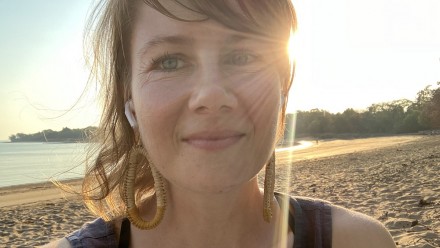Emergency Department elective, Mater Dei Hospital, Malta
At the beginning of my fourth year at ANU, I undertook an elective placement at the Emergency Department of Mater Dei Hospital, Malta. Mater Dei hospital is the only hospital serving the islands of Malta, and so sees a vast array of different presentations on a daily basis.
The hospital itself is a 1200 bed hospital, which encompasses a huge amount of specialties for the small Maltese population of about 400,000 people.
It was for this reason that I initially chose to undertake my placement in the accident and emergency department, hoping to be exposed to not only the common presentations I could also see in Canberra, but also some that would be unique to working in a larger center.
All of the staff I encountered while on placement were willing to teach, regardless of how busy the department would become.
This allowed for an environment that was both supportive and informative, allowing me to further develop my confidence and skills as I move closer to finishing the degree.
Throughout my four weeks, I had the opportunity to see everything from acute chest pain to polytrauma cases and multiple resuscitations.
At each of these instances, I was involved in the problem solving thought process for each case, and on many occasions was able to help with the workup of the patient.
In the resuscitation scenarios, elective students were encouraged to be involved and often we received a running commentary of explanations as the events were unfolding.
Perhaps the most impactful moment of elective was the case of a significant polytrauma in a 25 year old male, who had been the victim of a horrific construction accident.
The compassion and empathy which was shown by each member of the healthcare team involved, and the ways in which the team were vocal about the rights of these workers outside of the hospital setting have made a lasting impact.
It cemented for me the importance of treating all patients with the same level of time, care and compassion, as well as the impact of just being able to listen to a patient can have.
So, while this elective was able to help my further my practical skills and patient interaction skills, it also taught me invaluable lessons about how to remain compassionate and empathetic in a field where you will see a number of cases that are similar. Despite these situations being familiar to you as a doctor, they will remain as terrifying and unknown to the patient as our first time encountering them.
I am unbelievably grateful to have witnessed and experienced not only the ways in which medicine is practiced in Malta, but also the culture of the Maltese people.
The experience has allowed me to be more grateful for the access to healthcare that Australian people have, and for the equity in provision of these services to a vastly varied population.
In future, when I look back upon my time as a medical student, I have no doubt that my experiences on elective in Malta will be some of my fondest.
I would definitely recommend that anyone undertake this elective opportunity to see an array of presentations, and be involved in cases and protocols that they may not encounter at home.














